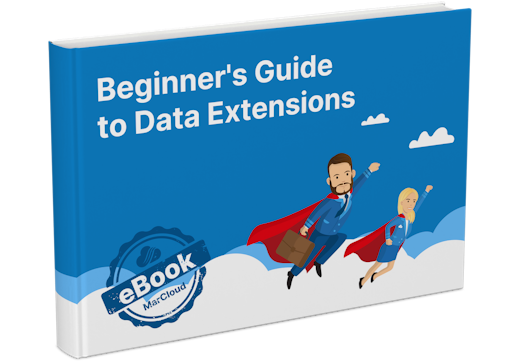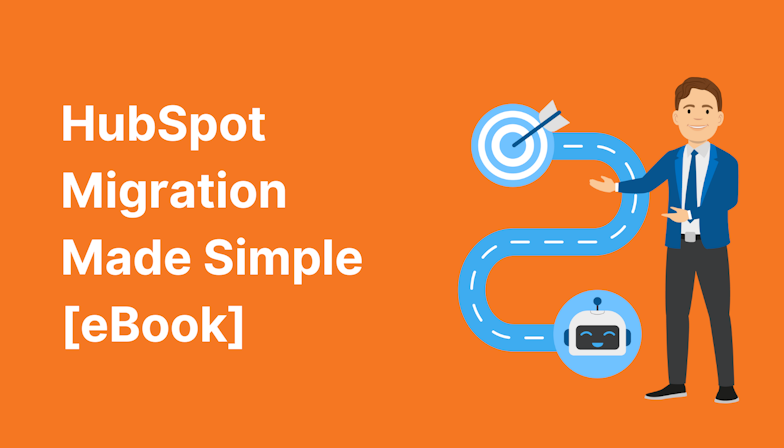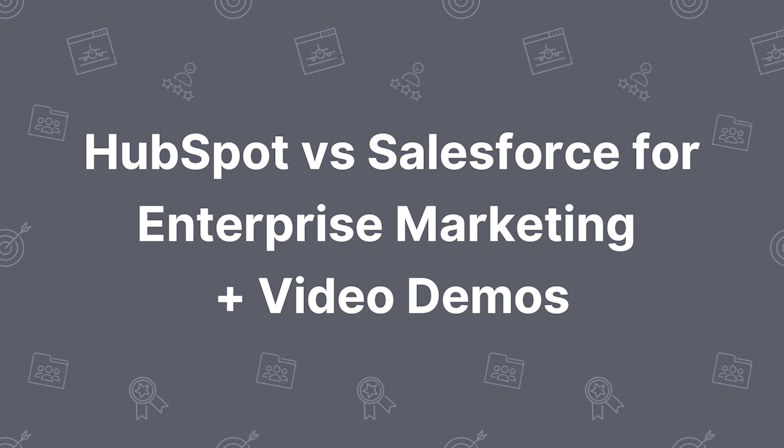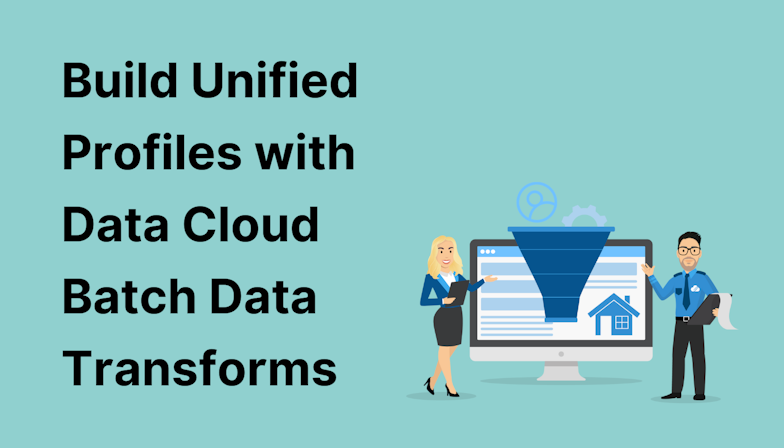Simply put, when it comes to creating a robust, actionable, and insightful data environment for marketing teams, Salesforce Marketing Cloud Engage has the competition beat. It's a bold statement for sure, but as a data fiend who has worked with multiple marketing automation platforms (MAP), it is one that I feel confident putting out there.
Why? Here are five reasons:
- Data quantity - MCE can cope with millions of data records.
- Structured data - it supports a fully relational data model.
- Data queries - SQL allows for precise data queries and accurate segmentation.
- Programmatic support - getting technical here, but programmatic support is advanced.
- Making data actionable - there are multiple ways to use your data in MCE.
For the full explanation, keep reading or click on the reasons above to skip to that section.
1. Data quantity
First of all, any Marketing Automation Platform (MAP) that can't store all the data you want to use will limit your ambitions when it comes to marketing automation.
The way I like to look at data in a marketing automation context is to see it as a pyramid whereby your raw data is the base, the middle section is the data after it has been cleaned and categorised, and the tip is the insight gained from the analysis of the data. So, if you can't store all your raw data (the base), then eventually this will limit the insight you get (the tip).
Marketing Cloud Engage is built on a tried and tested relational database model that has been proven, over the years, to effectively support the processing of millions of data records. It can cope with millions of data records with relative ease and within minutes, unlike competing MAPs that, in worst-case scenarios, can take many hours to process data.
2. Structured Data
When building a data model to support your marketing operations you need to know that it is able to reflect your business needs. Moreover, you need to know that it can also be adapted to the way your marketing team works.
In this regard, Marketing Cloud Engage leaves the competition in the dust. The reason? Well, Marketing Cloud supports a fully relational data model.
This means that you can build related tables of data that can be reasoned over to get the exact data you need at the time you need it. Or more simply put, you can ask sophisticated questions of your data and it will return answers that make sense.
For example, I can create a table to contain records of all purchases made, and when I need to, I can ask the system to return me all purchases made by a particular customer - even though the purchase records do not contain any specific information about that customer. We can do this because we create a table for the customer data and then use the unique id of the customer to link it to the purchases table.
The alternative to this is to have a flat customer record that contains their purchase information, but this makes no sense as you do not know how many purchases a customer might make so, therefore, you don't know how many fields you need to add to the customer table.
Yes, other MAPs support a degree of relational data modelling, but they are all limited. Oracle Eloqua [author note - they may call this something else now], for example, has a relational model, but this is limited to one relationship level. So, if you wanted to link your contact to purchases and then link the purchases to a product database that contained detailed product info, this would not be possible with Eloqua.
3. Data Queries
Structured Query Language (SQL) is both a blessing and a curse for Salesforce Marketing Cloud.
It's not as intuitive, and harder to learn than your typical segmentation tools (and Marketing Cloud still has segment Filters for those who can't SQL, by the way). In fact, for someone not steeped in data science, it can all seem like trying to learn ancient Greek. But where it excels (and why I am a big fan) is at being able to make precise queries that can extract the exact data your marketers need.
What's more, you can actually transform that data into something that is really meaningful for a given marketing journey. You've got a persona you need to target? Use an automation in Marketing Cloud to build a data table that reflects the attributes only relevant to that persona. You have multiple data systems with similar data, but all the labelling is different? Merge that data using SQL and create a table that the final marketing user can use with confidence (they won't even know they are using data from different systems).
It's not easy by any stretch, but all of this is possible and if you have the team members or the support to build these automations, the sky is very much the limit in terms of what you can do. You don't have to use SQL all the time, but it's there and it is the most powerful segment-building tool there is.
4. Programmatic Support
Yes, it's another subject that is a bit technical, but Marketing Cloud Engage provides so much more programmatic support than any competing platform.
What does this mean? It’s a big subject, so I'll just provide one example to illustrate what this means in terms of marketing enablement. Say I wanted to prompt a customer for a review and star rating based on a recent purchase, then attach information on that review to the customer record whilst simultaneously adjusting the aggregate review score for the product… I would have a really tough challenge in most systems.
In MCE, I can create a Cloud page that can host the user interface for the review. When the user clicks from an email and completes the review, we trigger a script that directly inputs the review data to the correct contact and, with some simple coding logic, can update the aggregate score. Other systems, like Adobe's Marketo [author's note: like Eloqua the official name may now be different], have velocity script that is nifty for creating dynamic content in emails (but doesn't work on landing pages), but it is very limited in comparison. I could write a whole blog post and more on this one subject, but I will just leave it at that!
5. Making Data Actionable
Programmatically using your data with AMPScript is just one of the ways in which we can actually use our data in MCE.
We can also access and manipulate our data with Server Side Java Script, an entirely different programmatic language that can be used in emails, landing pages and (very powerfully) with Automation Studio. We also can use our data with the Einstein suite of AI tools to gain incredible new insights and even dynamically choose the right content and send times for our emails.
And then there are the channels. Data can be used in SMS messages, to create advertising audiences, or even to push messages to your business-owned apps.
There may be a steeper learning curve in Marketing Cloud Engage than with other platforms in this space, but let's not beat around the bush, it is the only platform in this space that can realise the full potential of your businesses' key marketing asset - its data.
Are you managing and manipulating your Marketing Cloud Engage data to its full potential? Request a free review of your account and our experts will provide feedback and recommendations on how to take your setup to the next level.

Anton Minnion
A data scientist and engineer, Anton has extensive experience in successfully delivering martech and salestech solutions for a variety of clients, both big and small, and across 25 countries. With a scary amount of knowledge in the development space, his focus at MarCloud is on innovating technical solutions for clients but also creating brand new apps and products for Salesforce platforms, to solve common business challenges.
More by Anton MinnionFeatured resource

Beginner’s Guide to Data Extensions
We know from experience that Data Extensions are not always the friendliest Marketing Cloud tool – they can confuse both experts and beginners alike! Our ‘Beginner’s Guide to Data Extensions’ eBook will demystify any confusion around Data Extensions and how to use them.
Download now



